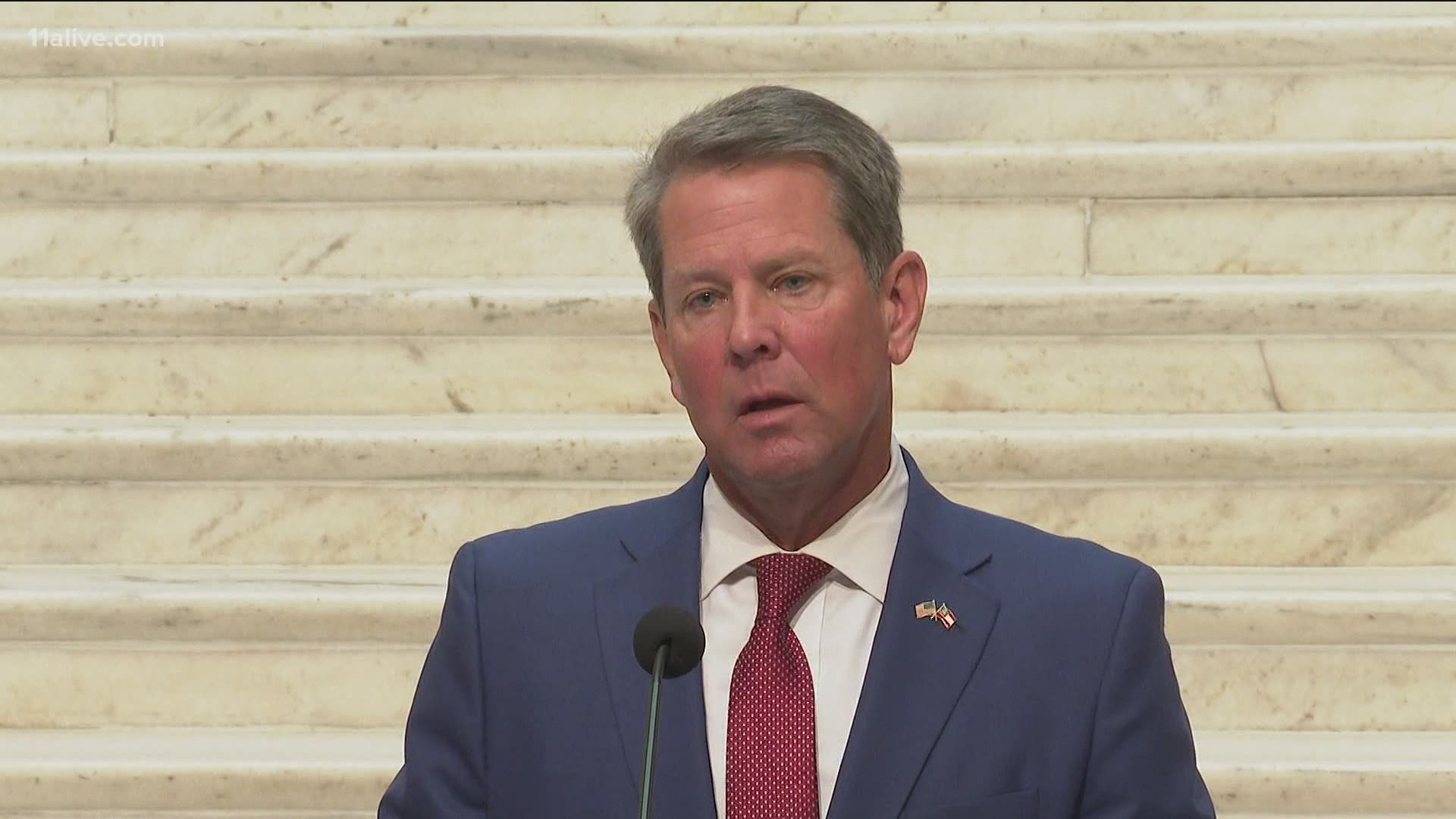A recent lawsuit by Georgia's governor against Atlanta's mayor could hinge on a single vital question - but the outcome is far from assured according to a Georgia State law professor who spoke with 11Alive on Sunday.
Gov. Brian Kemp recently announced a lawsuit against Mayor Keisha Lance Bottoms and the city council after the mayor said the city would continue to enforce a mask mandate despite a statewide executive order that said she couldn't.
Combined with a once-in-a-lifetime pandemic, the lawsuit now has the makings of something altogether different that could test the powers of both leaders.
"I think that it raises probably novel legal questions that have never been decided by the Georgia courts before," Georgia State University Law Professor Clark Cunningham said.
Most of the questions lie in the specific wording, reasons, and specifically how the governor received his current powers. Those also the limits.
"He's not a monarch, he's an executive," Cunningham said. "And, in this case, he's not acting with the authority of the legislature which is normally what would give the governor the ability to act."
He said these powers are afforded, in this case, because Kemp is acting during an emergency.
"And so we will allow a governor to take extraordinary actions to deal with an emergency like a hurricane - or like a pandemic," Cunningham said. "But those emergency powers are limited by the scope of the emergency."
And while the public health emergency was declared with the approval of the legislature, Cunningham said the scope of that power rests, in large part, with the answer to a key point.
"That order says that he can take action to protect the health, safety and welfare of Georgia's residents and visitors, to ensure COVID-19 remains controlled throughout this state," he said. "So, every action he takes has to be measured against the standard of that emergency order."
And that may be where a lawsuit against a mask mandate could be problematic.
"So, the question in this lawsuit is whether his effort to prevent Atlanta from having a mask order actually ensures that COVID-19 remains controlled," Cunningham said. "It doesn't seem that the answer is yes; it seems that preventing Atlanta and other cities from requiring the wearing of masks actually ensures that COVID does not remain controlled."
While he said it appears the lawsuit seems to sit in opposition to the public health emergency Gov. Kemp is using to justify the order, Cunningham said he wouldn't venture a suggestion of how the case could go in Georgia courts.
He also added that Mayor Bottoms is acting under the "inherent authority" the city has to take action to protect residents during the pandemic.
"Now, if she had a less restrictive order than the governor gave, then the governor would have a case to say, 'I'm going to override your less restrictive order in order to protect public health to prevent the pandemic'," Cunningham said. "But here he's saying, 'You're taking a stronger action against the pandemic and I'm not going to allow you to do that'."
However, Cunningham said he does expect the governor to lose on at least one action in the suit - an emergency injunction to prevent the mayor from speaking to the press.
"I was actually surprised to see that in his lawsuit," he said. "Generally, courts are not going to issue orders preventing people from speaking and that's what he's trying to do is prevent Mayor Bottoms from making a statement to the press."
He said that she is free under the First Amendment to air her disagreements with Gov. Kemp.
"Even if a judge issues an order, I think she's free to say, 'I disagree with the order; I'm appealing it," Cunningham said. "So I think that part of the lawsuit is really an overstep."
In reference to Gov. Kemp's reasons for suing the mayor, Kemp tweeted on the day of the lawsuit that it was on behalf of the city's business owners who he said are "struggling to survive" likening the decision to his response to "disastrous policies" that he suggests led to recent violence in Atlanta.
Kemp also suggested previously that the mayor's policies were merely guidance that could not be enforced and that the mayor should "start enforcing state restrictions, which she has failed to do."
He makes no specific mention in that message regarding exactly which requirement the city has failed to comply with. However, he suggested days later in a press conference, that protesters in the city were a major contributing factor in COVID-19 both directly, due to the crowd sizes, and indirectly, by convincing people it was safe to go out once more.
11Alive has spoken with an Atlanta-based infectious disease specialist and looked at a study from the National Bureau of Economic Research which both suggest the data does not support that line of thought - at least for now.
At least one reason the infectious disease doctor said this may be the case, is the fact that protesters were regularly seen wearing masks during Atlanta's events.
That said, Gov. Kemp has also pushed for the state's residents to wear masks - even touring the state to push for their use. However, he has repeatedly said that they don't need to be mandated. He has also extended existing mandates continuously since the state first reopened from a shelter-in-place ordinance.
MORE HEADLINES

